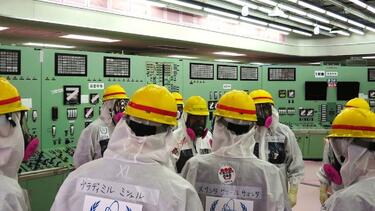Management in Practice
How much has investment banking really changed?
The investment banking industry has been subject to new scrutiny, increased regulation, and changing capital requirements since the financial crisis of 2008. How much has this changed what bankers do? Yale Insights spoke with industry veteran Fred Terrell '82.
How does China drive the mining and metals business?
The $1.5 trillion mining and metals sector supplies the feedstock for a large part of everyday life—from coal for power, to iron ore for steel girders, to the minerals and metals that are processed into the components of your iPhone. John Lichtenstein '83, a consultant and 30-year veteran of the sector, describes the state of this global industry and how one country—China—has an outsize influence on commodity prices everywhere.

Can local empowerment create lasting change?
Over the last 50 years, Western aid to the poorest countries has often failed to make tangible improvements in the lives of their citizens. Nadim Matta '89, president of the Rapid Results Institute, talks about the organization's approach to achieving incremental change by empowering frontline stakeholders.

What are your options in the health insurance exchanges?
The insurance exchanges at the center of healthcare reform will open for business later this year. Alongside existing for-profit insurers, the exchanges will include new nonprofit insurers called Consumer Oriented and Operated Plans (CO-OPs). Allison Silvers '90, chief operating officer of a CO-OP sponsored by the Freelancers Union in New York, discusses the health insurance exchanges and what it takes to create a new kind of insurer.
How is the definition of a bank changing?
Increasingly, a bank is a virtual entity rather than the imposing edifice downtown. Amy Brady, the chief information officer of Cleveland-based Key Bank, talks about the impact of technology on banking.
How will Obamacare change healthcare?
A recent spate of news gives hints about whether the Affordable Care Act is likely to be successful in improving healthcare coverage and quality. Robert Galvin, CEO of Equity Healthcare, a firm that manages health insurance for more than 300,000 people, talks about how he sees the law changing the health insurance market—and the importance of continuing to innovate on all levels.
How do you set strategy for a global enterprise?
Long-term thinking often gets lost in solving short-term problems, but the most successful companies make corporate strategy a top priority.

How do you lead a company through a nuclear accident?
The 2011 tsunami and the meltdown of the Fukushima Daiichi nuclear power plant in Japan shattered the nuclear industry’s "safety myth" and prompted the shutdown of all nuclear power plants in the country. Naomi Hirose '83 talks about leading the plant’s operating company through an unprecedented cleanup and rebuilding effort.

What are the forces changing the banking industry?
John Shrewsberry, the president of Wells Fargo Securities, outlines how government regulation and the ongoing tight credit environment are affecting the banking industry—and how big banks can keep up with the rapid pace of change today.
What does a networked future look like?
The internet has already prompted large shifts in how many of us live our lives. What will happen when all of us are connected to the internet all the time? Eric Schmidt, executive chairman at Google, talks about the company's vision of the future.